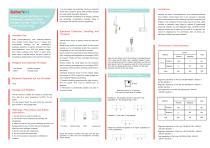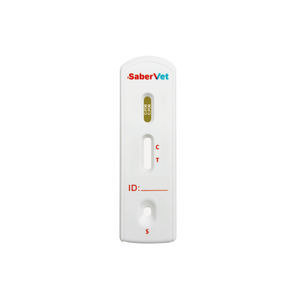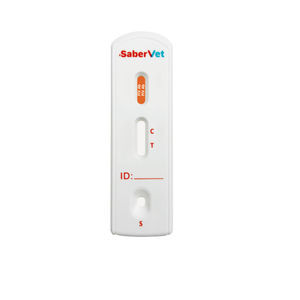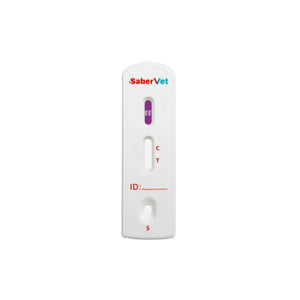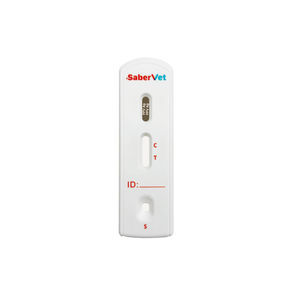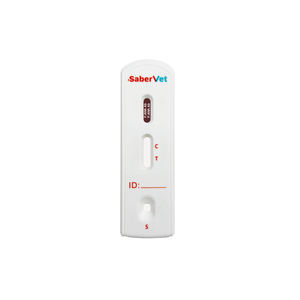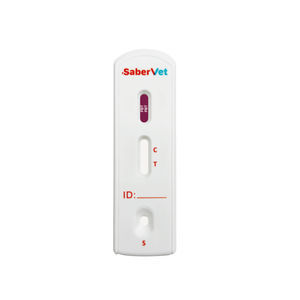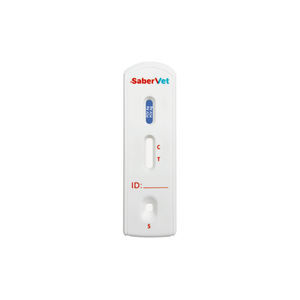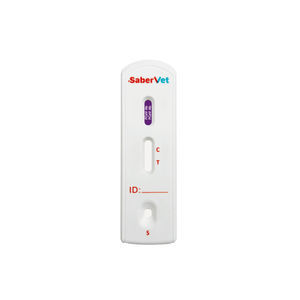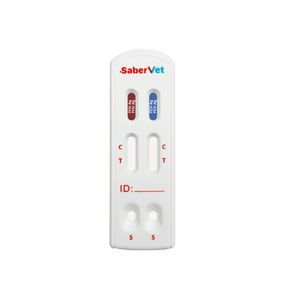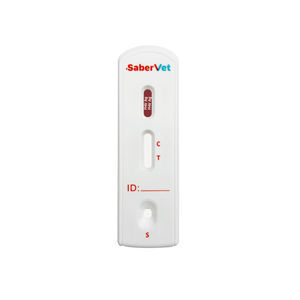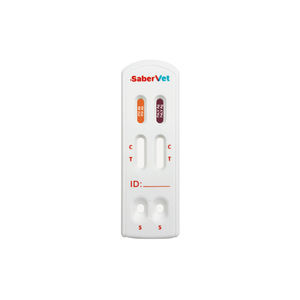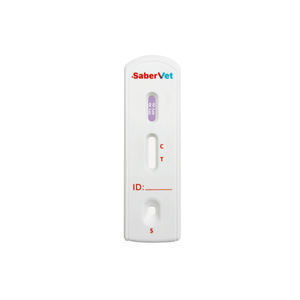
- Laboratory
- Laboratory medicine
- Rapid infectious disease test
- Hangzhou Antigenne Technology Co. Ltd
- Company
- Products
- Catalogs
- News & Trends
- Exhibitions
Rapid infectious disease test SaberVet veterinaryfor catsfibrin
Add to favorites
Compare this product
fo_shop_gate_exact_title
Characteristics
- Applications
- for infectious diseases
- Application field
- veterinary
- Patient type
- for cats
- Tested parameter
- fibrin
- Micro-organism
- coronavirus, FCoV
- Sample type
- serum, plasma, whole blood
- Analysis mode
- immunoassay, lateral flow
- Format
- cassette
Description
The SaberVet Feline Infectious Peritonitis Virus Antibody Rapid Test sold by Antigenne is a lateral flow immunoassay intended for the qualitative detection of specific antibody from feline infectious peritonitis virus (FIPV) in feline ascites, serum, plasma or whole blood samples. The test is useful for determination of FIPV infection.It is recommended for cats with symptoms of significantly enlarged abdominal circumference.
Description
Feline Infectious Peritonitis (FIP) is a fatal disease caused by certain mutant strains of feline coronavirus (FCoV).The pathology of FIP can be characterized according to its two main forms- -wet (exudative type) and dry (non-exudative type)
Wet FIP (exudative type)
Wet FIP is characterized by the accumulation of fluid in body cavities, usually in the abdominal and thoracic cavities. These effusions are usually:
Yellow to clear fluid that may be viscous.
High protein content (total protein concentration usually greater than 3.5 g/dL).
Low cellular content, with neutrophils and macrophages predominating.
Pathologic features
Vasculitis: wet FIP often presents with perivascular inflammation called necrotizing vasculitis. The walls of the blood vessels are eroded, leading to accumulation of exudate.
Plasma membrane inflammation: the peritoneum, pleura, and pericardium often show inflammation in the form of fibrin deposition and inflammatory cell infiltration.
Dry FIP (non-exudative type)
Dry FIP is characterized by granulomatous lesions of multiple tissues and organs rather than body cavity fluid collection. These granulomas are found primarily in: Liver, kidneys, lymph nodes, spleen, CNS
Exhibitions
Meet this supplier at the following exhibition(s):

Other Hangzhou Antigenne Technology Co. Ltd products
Feline
Related Searches
- Blood rapid diagnostic test
- Rapid lateral flow test
- Immunoassay rapid diagnostic test
- Cassette rapid diagnostic test
- Virus rapid diagnostic test
- Serum rapid diagnostic test
- Plasma rapid diagnostic test
- Infectious disease rapid diagnostic test
- Whole blood rapid diagnostic test
- Rapid respiratory infection test
- Urine rapid screening test
- Bacteria rapid diagnostic test
- Rapid feces test
- Clinical rapid diagnostic test
- Nasal rapid diagnostic test
- Obstetrical/gynecological rapid test
- Rapid oral flu test
- Dog rapid test
- Coronavirus rapid diagnostic test
- Laboratory rapid diagnostic test
*Prices are pre-tax. They exclude delivery charges and customs duties and do not include additional charges for installation or activation options. Prices are indicative only and may vary by country, with changes to the cost of raw materials and exchange rates.


